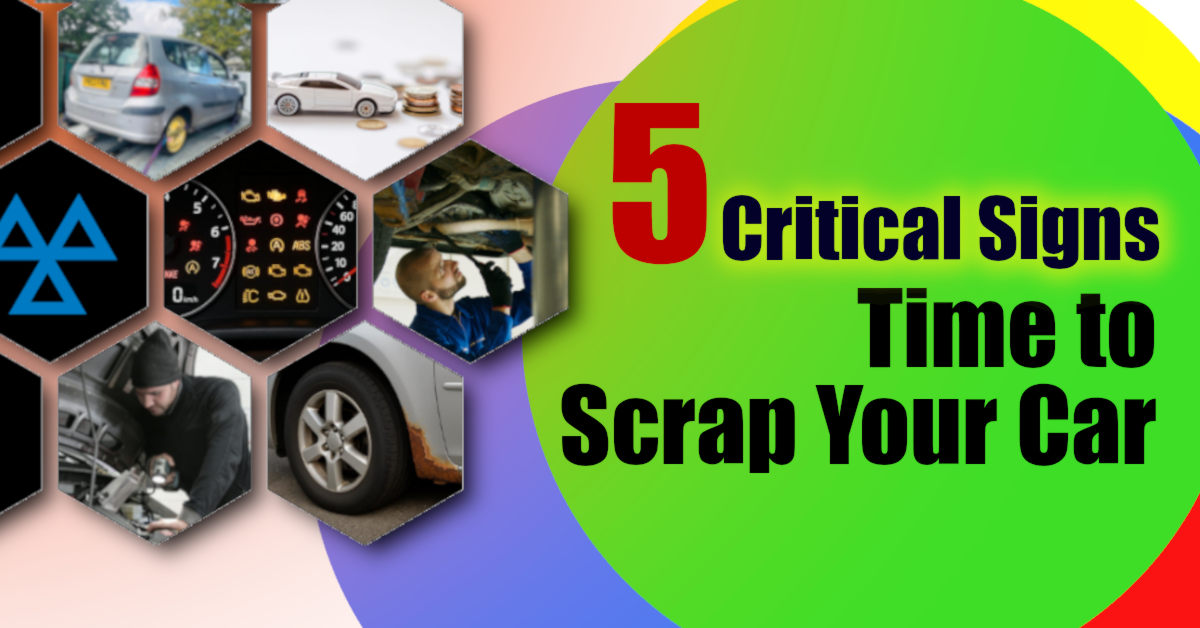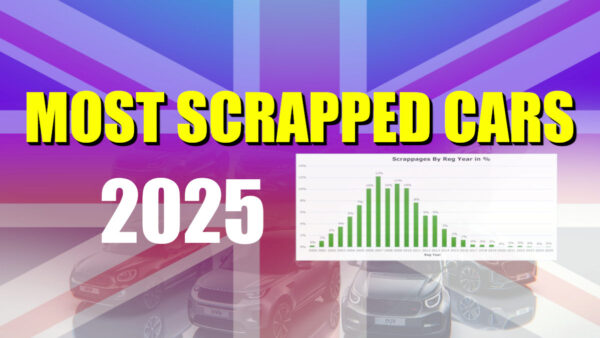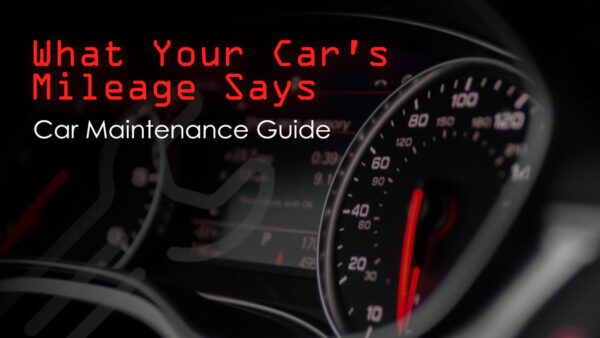Spotting the early signs that you need to scrap your car saves money and ensures safety. This guide reveals the critical warnings that make scrapping your car the only smart financial move.
In This Guide: Key Warning Signs
- Critical Dashboard Warning Lights
- Serious Engine & Mechanical Noises
- Persistent and Costly MOT Failures
- Structural and Bodywork Rust
- When Repair Costs Outweigh the Car’s Value
1. Critical Dashboard Warning Lights
Your car’s dashboard is its direct communication line. While some lights are minor, red warnings are critical.
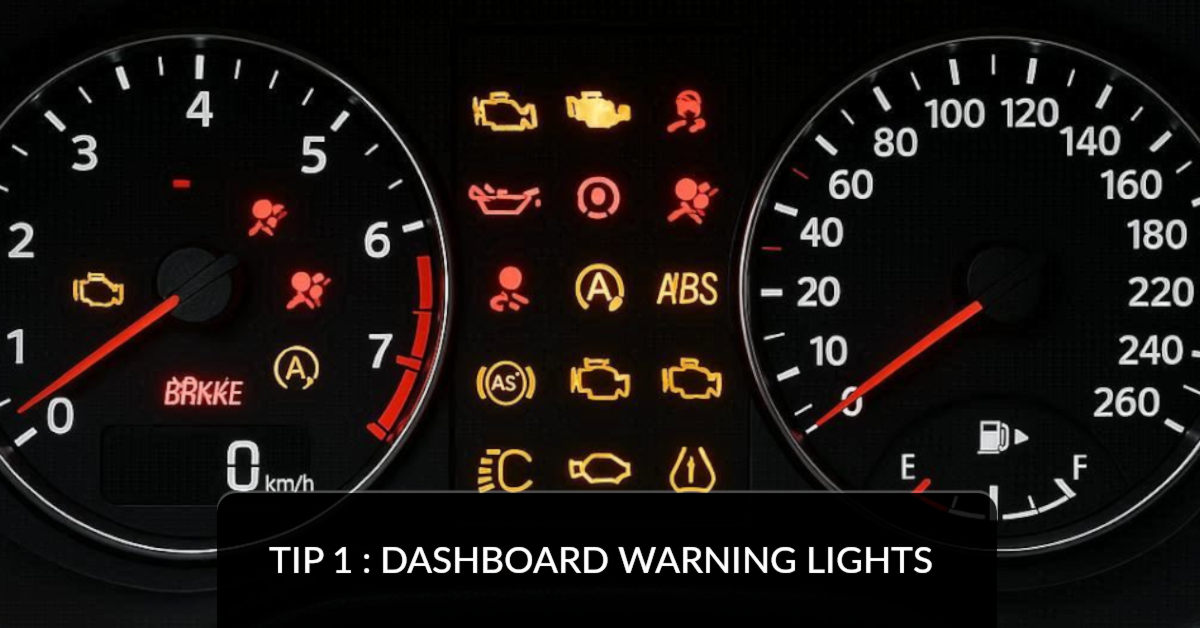
The Red Engine Management Light
A solid or flashing red engine light often signals a severe issue like catastrophic engine misfire or overheating. Ignoring it can lead to complete engine failure, a repair that usually costs more than an older car is worth.
The Oil Pressure Warning
This red light, often an oil can icon, means your engine has lost oil pressure. Driving even a short distance can cause irreversible metal-on-metal damage, seizing the engine entirely.
The Brake System Warning
If this light stays on, it indicates a failure in the braking system. This is an immediate safety risk, and the cost of repairing ABS modules or master cylinders can be prohibitively expensive.
2. Serious Engine & Mechanical Noises
Unusual sounds are often the first audible clue of terminal mechanical failure.
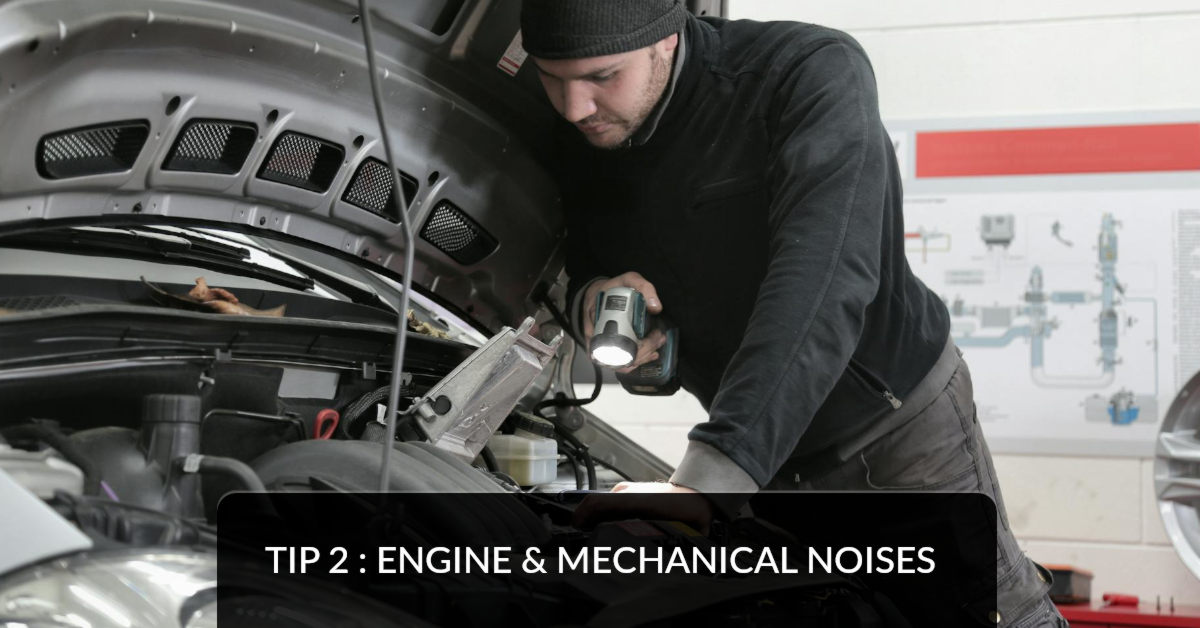
- Typical Underlying Issues:
- Tapping Noise: Often related to the top end of the engine, like hydraulic tappets that need adjusting or are low on oil.
- Knocking Noise: A more serious concern. This could indicate “big-end” bearing wear, which can lead to catastrophic engine seizure if ignored.
- Rattling on Startup: Could be a worn timing chain or tensioner, a common issue in certain makes and models.
Knocking from the Engine
A deep, repetitive knocking from the engine bay typically signals “big end” bearing failure. This requires a full engine rebuild or replacement, which is almost never economical for an ageing vehicle.
Grinding When Changing Gears
A grinding sound when you change gears, especially if the clutch pedal feels normal, points to a worn-out gearbox. Replacing a transmission is one of the most expensive repairs a car can face.
Loud Roaring from Underneath
A sudden, loud roar from underneath the car often means a broken exhaust manifold or a completely failed catalytic converter. Replacing a catalytic converter alone can cost over £500.
3. Persistent and Costly MOT Failures
An MOT test is a yearly health check. Repeated failures in key areas signal the end of the road.
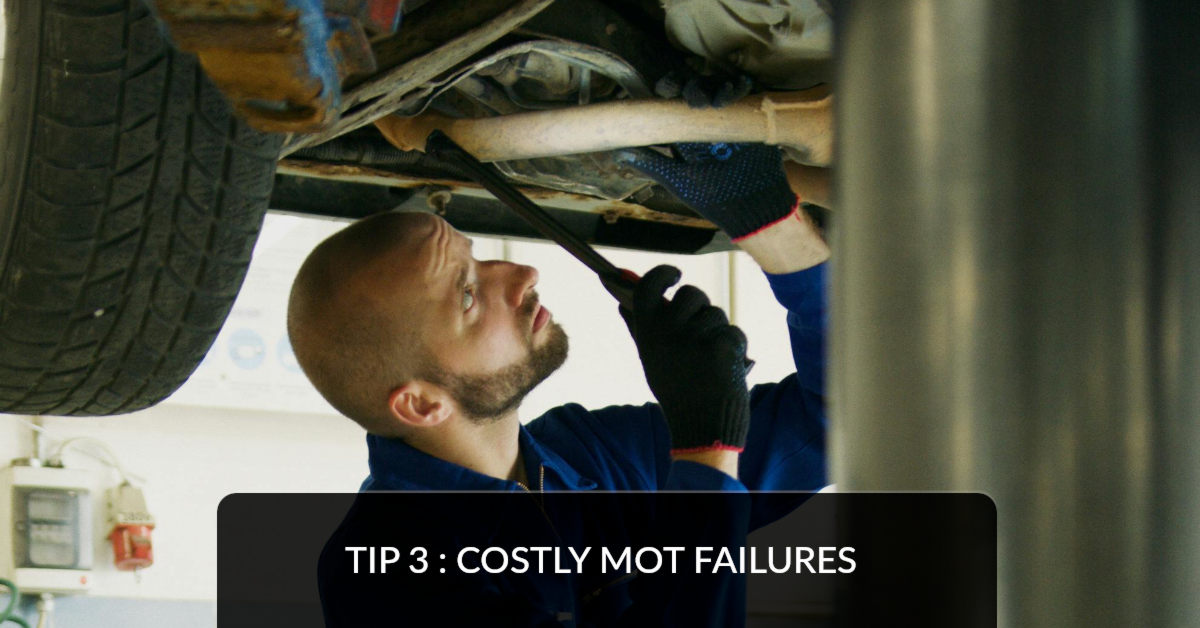
Major Structural Corrosion
An MOT failure for “excessive corrosion” in areas like the chassis, seatbelt mounting points, or suspension anchors is a terminal diagnosis. Repairing structural rust is complex, unsafe if botched, and rarely cost-effective.
Repeated Brake and Suspension Failures
If your car consistently fails on brakes, shock absorbers, or suspension components year after year, it’s a clear sign of systemic decay. The cumulative cost of these repairs will quickly surpass the car’s value.
4. Structural and Bodywork Rust
Rust isn’t just cosmetic; it’s cancer for a car’s structure.
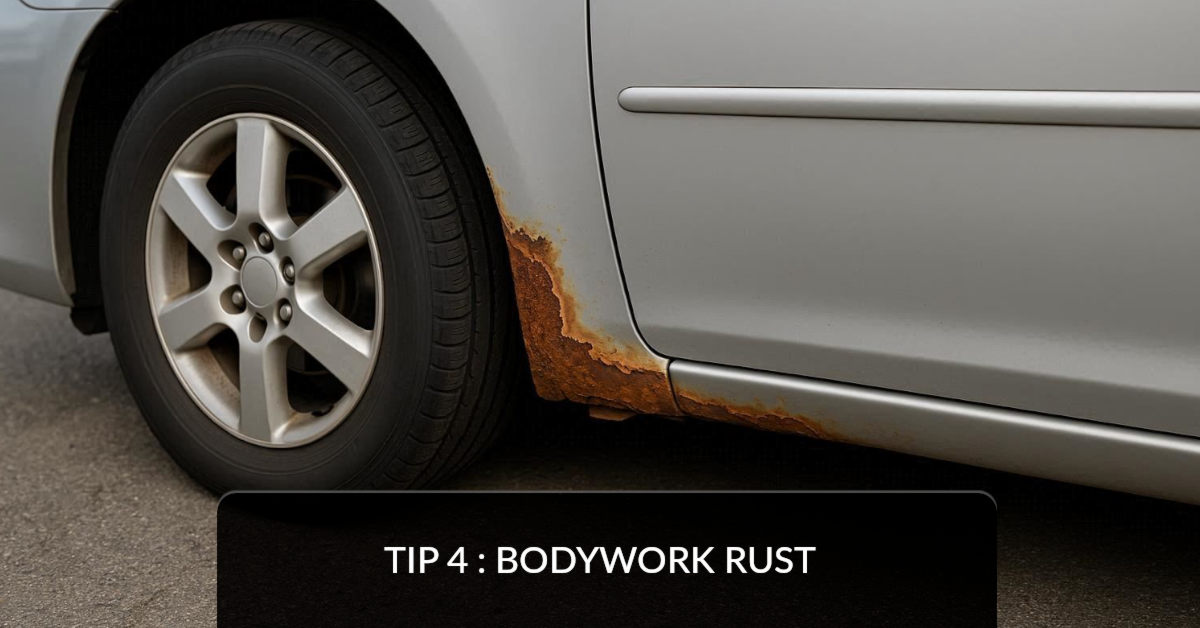
Bubbling Paint on Body Panels
Bubbles under the paint on wings, doors, or sills are a visible sign of rust eating from the inside out. While some panels can be replaced, widespread issues are a bad sign.
Holes in the Floor or Sills
If you can see the road through holes in the footwell, or if the sills (the car’s structural ribs underneath the doors) are crumbling, the vehicle’s integrity is compromised. This is unsafe and an immediate MOT failure.
5. When Repair Costs Outweigh the Car’s Value
This is the ultimate financial rule for scrapping your car.
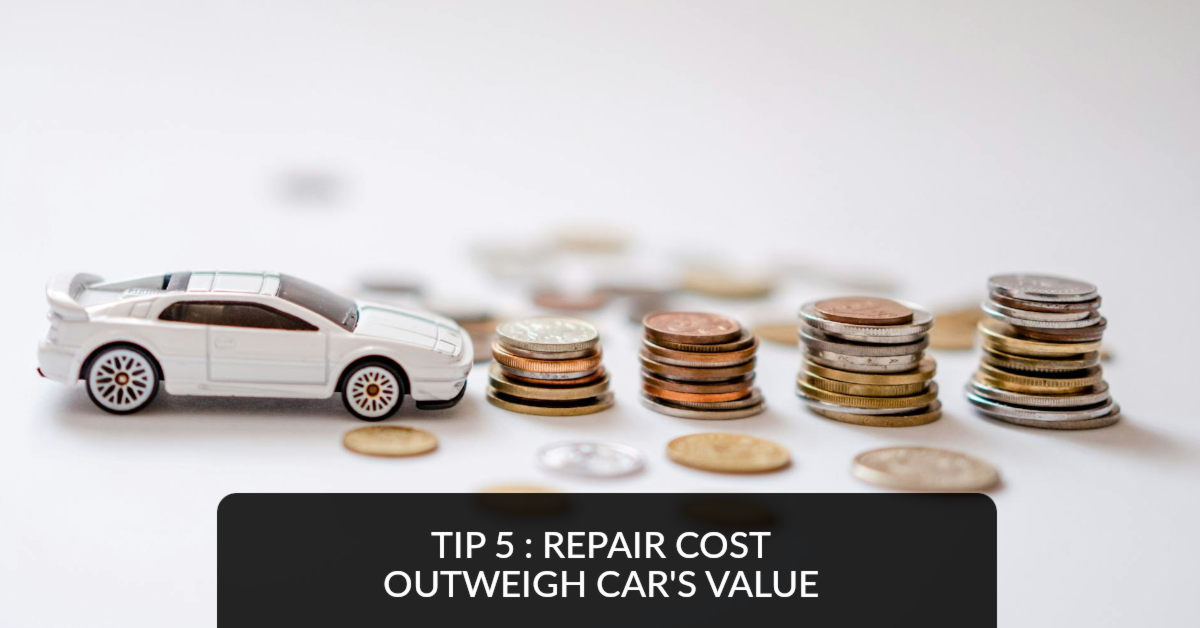
The 50% Rule
If a single repair quote is more than 50% of your car’s current market value, scrapping is almost always the smarter financial decision. Pouring £1,500 into a car worth £1,000 is a loss-making investment.
The Reliability vs. Cost Equation
Consider the downtime, rental car costs, and the stress of constant breakdowns. Scrapping an unreliable car provides a cash payment and peace of mind, allowing you to move on to a safer, more dependable vehicle.
Top 5 Car Repairs That Cost a Fortune
- Knackered Engine: Seized or blown engine needs full replacement.
- Cost: £2k – £6k+
- Failed Clutch & Flywheel: Common in modern diesels, very labour-intensive.
- Cost: £1k – £2.5k
- Blocked DPF Filter: Clogs on diesel cars used for short trips.
- Cost: £1k – £2.5k
- Automatic Gearbox Failure: Complex repair requiring specialist skills.
- Cost: £1.5k – £4k+
- Dead Hybrid Battery: The most expensive component to replace.
- Cost: £3k – £10k+
The bottom line: If the repair bill is more than your car’s value, scrapping is your smartest move.
Ready to Move On from Costly Repairs?
If the numbers don’t add up, it’s time for a fresh start. Scrapping your car with us is the smart financial decision that turns your problem into instant cash, often on the very same day.
- 💰 Get London’s Highest Scrap Price
- ⚡ Same-Day FREE Colelction Service
- ✅ 12+ years in the business.
- ⭐ 4.6 Excellent Trust Pilot Reviews
- 🛡️ 100% Legal & Safe: DVLA authorized ATF
Which Car Makes Most Often Face These Costly Repairs?
While any car can develop problems, some makes frequently appear in our yard due to specific, well-known issues. Click your car’s make to learn about scrapping it.
- Scrap a Vauxhall – Especially diesel Insignia and Astra models with DPF issues.
- Scrap a Ford – Common for Focus and Mondeo diesels and Powershift gearbox faults.
- Scrap a BMW – Ageing 3 Series and 5 Series often have costly turbo or electronic failures.
- Scrap a Mercedes – C-Class and E-Class models with complex air suspension and electronics.
- Scrap a Land Rover – Discovery and Range Rover Sport known for expensive suspension and gearbox repairs.
Not on the list? Get a quote for any make or model here.

